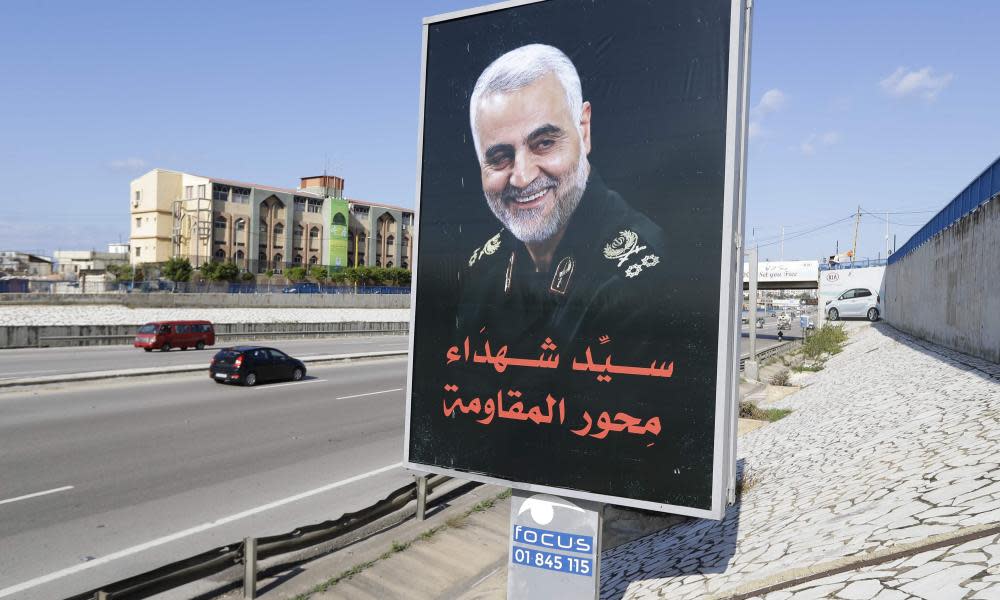Trump puts 'celebrity' terrorism targets ahead of national security – ex-CIA man

Donald Trump’s approach to counter-terrorism is to go after “celebrity” targets with famous names, regardless of the implications for national security, according to a former CIA officer who served under him.
In the wake of the assassination of Qassem Suleimani – and the administration’s contradictory justifications for the strike – Douglas London, a recently retired senior CIA operations officer, has suggested that the decision to kill the Iranian general may have had more to do with the president’s personality than any security considerations.
“When it comes to intelligence, like with so much else, Donald Trump likes big names,” London wrote on the legal website, JustSecurity. “It’s this focus on celebrity, headlines, and immediate gratification – versus substance, impact, and consequences – that so often motivates him.
“Partly because of this, as a senior CIA counterterrorist manager, my team and I often struggled in persuading the president to recognize the most important threats,” London, who now teaches at Georgetown University’s Center for Security Studies, said. “Now, with the killing of Qassem Suleimani, I worry that while Trump got a big name and lots of headlines, the long-term impact on US strategic interests was not fully considered.”
Related: Suleimani killing the latest in a long, grim line of US assassination efforts
London retired from the CIA at the end of 2018, and his last post was as the chief of counter-terrorism for south and south-west Asia. In his article, London suggested the Suleimani assassination is part of trend. He said Trump was “obsessed” with targeting Osama bin Laden’s son, Hamza, despite being told by his intelligence briefers that he was not likely to succeed Ayman al-Zawahiri, the current al-Qaida leader. Intelligence assessments said that Zawahiri and his senior lieutenants posed a greater danger, but “the president thought differently”.
“Trump’s obsession in focusing resources against Osama bin Laden’s son Hamza is one example of the president’s preference for a ‘celebrity’-targeted killing versus prioritizing options that could prove better for US security,” London said.
In July, it was reported that Hamza bin Laden had been killed. London did not quite confirm that his former agency was behind the death, but noted a news account quoting US officials as saying the US “played a role in the operation that killed him”.
Trump showed the same obsession with notoriety after the strike killing Abu Bakr al-Baghdadi, London wrote, saying that the president lost interest in pursuing lower-level operational Isis leaders.
“Although US efforts to target key Isis leaders and operatives had preempted what might have been any number of devastating terrorist attacks, the president’s lack of familiarity with their names made such efforts, and their accomplishments, less consequential to him,” he said.
London added that the killing of Suleimani, the head of the elite Quds Force of Iran’s Revolutionary Guards, “appears to have been more about Trump, and the potential for headlines, rather than the intelligence”.
The decision showed “resistance to intelligence community input”, London argued, and expressed doubt over reports that the CIA director, Gina Haspel, supported it.
Trump has claimed that Suleimani was about to mount attacks on four US embassies, but his defence secretary, Mark Esper, has said he was unaware of such a threat, and the embassies do not appear to have been put on alert.
Related: Reprisals against US to come at time and place of Iran's choosing
“I do not debate we had intelligence regarding any number of prospective attacks Iran was facilitating through proxies in Iraq, and elsewhere. But don’t we always?” London asked. “It’s what they do.”
He predicted that, after the initial waves of Iranian retaliatory missile attacks aimed US troops embedded in Iraqi bases, Iran would strike again, in covert ways.
“I expect that the Intelligence Community has told the president as much, or would have, if he bothered to solicit and value its input,” London said. “Instead, the president’s decision to kill Suleimani reflects his propensity to play a good hand badly and respond from ego rather than pragmatism and the country’s best interests.”

